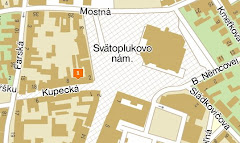100 years ago, it was not so rare for a person to be born, live, work and die in the same place. Now, with open borders and cheap airline tickets, the whole world has become accessible to us, and now it is more likely that people will live, study, marry and die in totally different places. The concept of "home" has now changed. This was the theme of our talk this week.
Diskusia 1:
-Kvôli čomu by si odišiel zo svojho mesta/krajiny? (žena, práca, príležitosť, dobrodružstvo)
-Kam by si šiel? Alebo nešiel?
-Žil/býval si už v inej kultúre? Čo sa ti tam páčilo/nepáčilo? Bolo ťažké sa prispôsobiť?
-Imigroval niekto z tvojej rodiny?
-Aký máš názor na imigráciu?
-Ako berieš ľudí z iných kultúr, ktorí žijú v tvojej krajine? Ako to vplýva na tvoju kultúru/krajinu?
-Aké máš skúsenosti s cestovaním?
-Máš priateľov, ktorí sú zjavne predstaviteľmi menšiny?
-Máš cestovateľského chrobáka? Cestuješ veľa?Discussion 1:
- What would cause you to leave your city? country? (wife/job/opportunity/adventure)
- Where would you go? Not go?
- Have you ever lived in another culture? What did you like? Not like? Was it hard to adjust?
- Is immigration in your family?
- What are your thoughts about immigration?
- How do you view other cultures in your nation? How has it changed your home culture/country?
- What has your experience with travel been?
- Do you have friends who are a part of a visible minority?
Avšak život v "malom" svete má na nás výrazný vplyv. Spoznávame nové veci, ako pásmová choroba (jet lag), kultúrny šok, nostalgia po domove a iné. Sú to veci, ktorým naši predkovia nikdy nemuseli čeliť.
But, living in such a "small" world does have it affects on us. We are introduced to new things such as, jet lag, culture shock, home sickness and the like. Things that our ancestors never had to deal with. Also, the whole concept of "home"...
Diskusia 2:
-Aká dôležitá je pre teba tvoja národnosť?
-Ako to vplýva na tvoju identitu?
-Zažil si už pásmovú chorobu (jet lag)?
-Ak žiješ mimo domu, aký máš vzťah so svojimi priateľmi/rodinou doma?
Discussion 2:
- How important is your nationality to you?
- How does it affect your identity?
- Have you ever experienced jet lag?
- If you live away from home, how do you relate to your friends/family back home?
- Do you have the travel bug?
Náš hosť Sheldon uzavrel klub s tým, že nám povedal o svojich vlastných bohatých skúsenostiach s cestovaním, ktoré je pre neho samozrejmosťou najmä kvôli práci. Podľa neho je dôležité vedieť kde je váš domov, nech cestujete kamkoľvek. Pre neho je to miesto, kde sú ľudia, ktorí ho milujú a prijímajú ho takého aký je. Nech je kdekoľvek na svete, pokiaľ sú tam takýto ľudia, tak sa cíti ako doma. A ako človek, ktorý je veriaci v Krista mu pomáha nachádzať "rodinu" kdekoľvek na svete a to je úžasné!
Our guest, Sheldon, concluded our club by telling us about his experiences with travelling a lot for work and life. He said that for him, wherever you go, you have to know what home is for you. For him, it is where there are people who love and accept him. He could be anywhere in the world, so long as he had that. Also, being a believer in Christ has caused him to have "family" everywhere in the world, and that's a great thing!
A nakoniec sme si pochutili na skvelých cupcake-och od Amber...mňaaam...
Then we had cupcakes...mmm... cupcakes... :)


